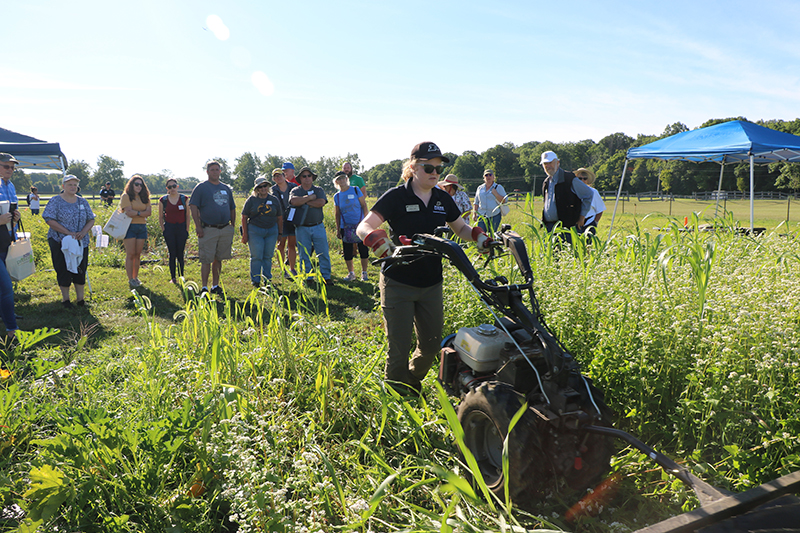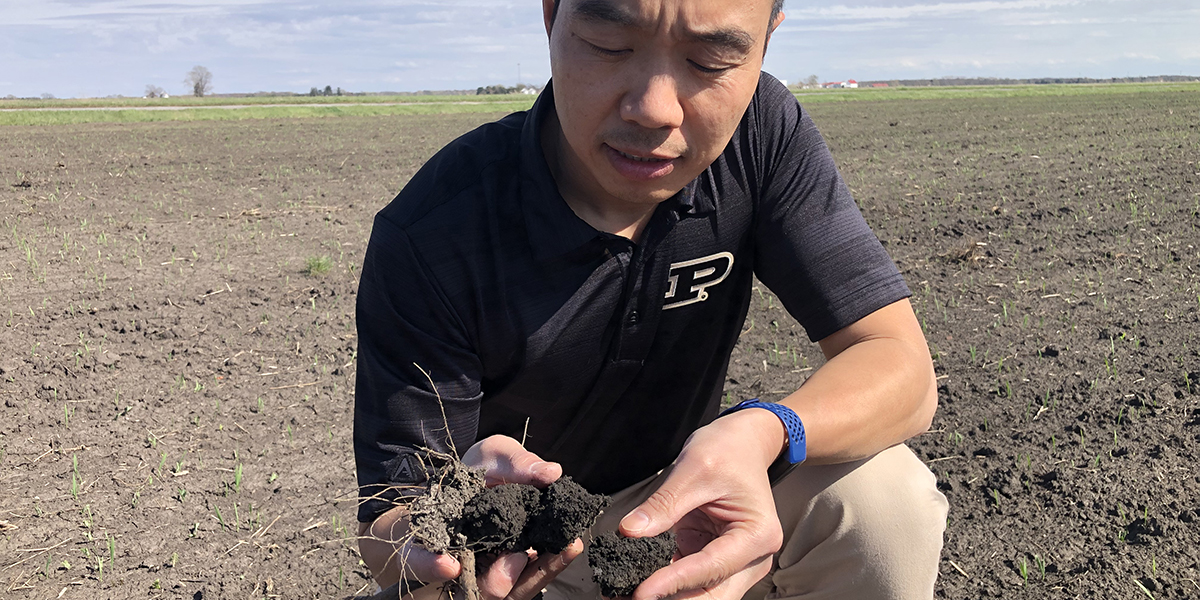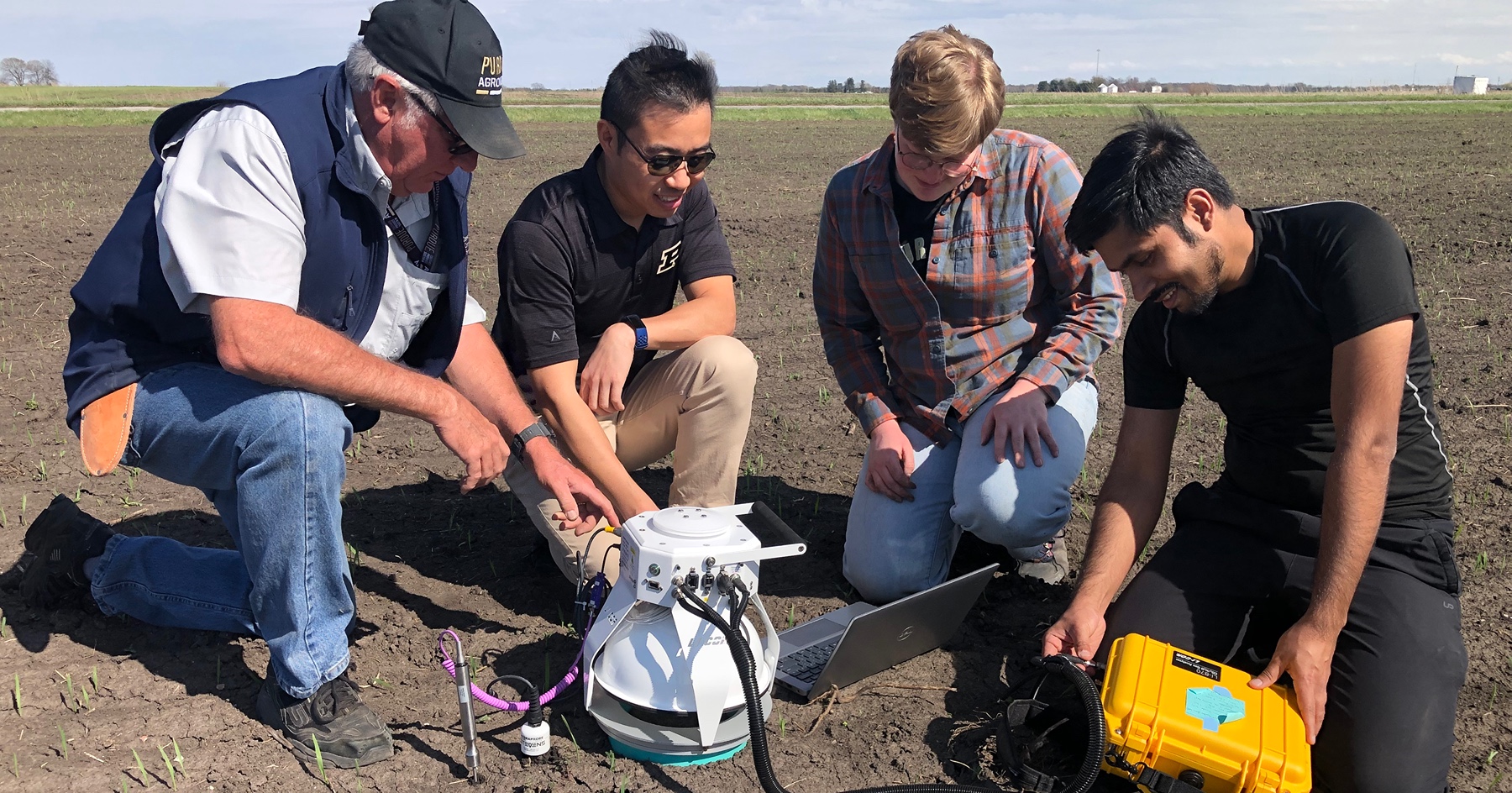Partnership to include Purdue, growers, conservation groups and industry stakeholders
A Purdue University interdisciplinary team is establishing a network of organic farmers to improve soil health.
The effort will formalize the Indiana Organic Network (ION) as part of a statewide initiative to assess soil health at regional and farm scales. The project is supported by a grant of nearly $1 million from the U.S. Department of Agriculture’s National Institute of Food and Agriculture.
“This project is about empowering Indiana organic farmers,” said Yichao Rui, an assistant professor in the Department of Agronomy who heads the Purdue Agroecology Lab. Rui leads the ION effort with Ashley Adair, Extension organic agriculture specialist in the Department of Horticulture and Landscape Architecture.
Project partners include the Conservation Cropping Systems Initiative and the Indiana Natural Resources Conservation Service.
“The formation of the Indiana Organic Network is something Indiana has needed,” Adair said. “We would like to see farmers — whether they’re grain farmers, specialty crop farmers or livestock farmers — take the reins and lead this network forward so that it can be for the farmer, by the farmer.”
Indiana ranks fifth in U.S. agriculture production, Rui noted. “Historically, we’ve been known for large-scale, conventional corn and soybean farming. That’s a proud history. However, recent challenges such as climate change, environmental degradation, human health issues and long-term food safety concerns require us to explore other farming approaches,” he said.
Organic farmers are sometimes able to reduce environmental issues by avoiding synthetic fertilizers, pesticides and herbicide and relying instead on crop diversity, organic fertilizers and extended crop rotations.
Indiana currently has 937 certified organic crop and livestock farms, Adair said. These range from a few acres or less for diversified vegetable farms on the small end, up to thousands of acres planted in row crops. ION is intended to assist certified organic farms and farms that are going through the USDA-mandated transition process.
“If somebody wants to become a certified organic farmer, they have to follow specific guidelines over the course of a 36-month transition period to meet those directives, which is federal law,” Adair said.
 Purdue’s Ashley Adair, Extension organic agriculture specialist, demonstrates a roller crimper attachment for BCS and other walk-behind tractors at the 2022 Small Farm Education Field Day. Adair co-leads Purdue’s launch of the Indiana Organic Network. (Credit: Purdue Agricultural Communications/Tim Thompson)
Purdue’s Ashley Adair, Extension organic agriculture specialist, demonstrates a roller crimper attachment for BCS and other walk-behind tractors at the 2022 Small Farm Education Field Day. Adair co-leads Purdue’s launch of the Indiana Organic Network. (Credit: Purdue Agricultural Communications/Tim Thompson) The project will include conducting the first statewide soil health census on organic farms in Indiana. The results will offer insights into soil health status of organic farming systems and the impact of various organic practices.
“Such information is essential for farmers to identify areas for improvement in their practices, such as reducing tillage, to further enhance soil health,” Rui said.
“Soil health is a foundation of long-term successful farming. Organic farming holds a lot of potential, but it presents significant challenges. It’s difficult because synthetic fertilizers are not an option. You need to build fertility and maintain soil health. How do you accomplish that? There are lots of questions and challenges,” he said.
Healthy soil is rich in organic matter, which encompasses a variety of components such as decomposing plant material, living plant roots and a diverse population of soil microbes. These elements are crucial as they contribute to the structure, fertility and overall biological health of the soil, supporting sustainable agricultural practices and robust plant growth.
Most organic farmers, along with some conventional farmers, practice cover cropping during the winter. Cover crops usually have deep roots and can add biomass underground. Carbon transfer to deeper layers is crucial for soil carbon sequestration and the function of organic systems. And yet there is still much to learn.
“A detailed understanding of what’s happening below the 15-centimeter depth, 6-inch layer, and the benefits of organic farming in that deeper soil is largely unknown. That’s a big knowledge gap,” Rui said. The Purdue team will work with organic farmers across the state to bridge this gap.
The Purdue team also plans to develop field-based microbial activity testing kits that would provide organic farmers with more immediate and better insight into nutrient cycling at a given location.
Organic farmers often fill knowledge gaps by doing their own trials, Adair noted. “If there’s a way that we at the university can help add to that story, then that’s what we need to do,” she said. “This project is one good step in the right direction to help build concrete data to help growers in Indiana.







